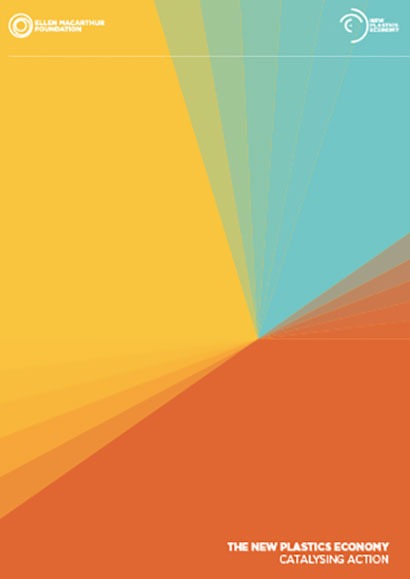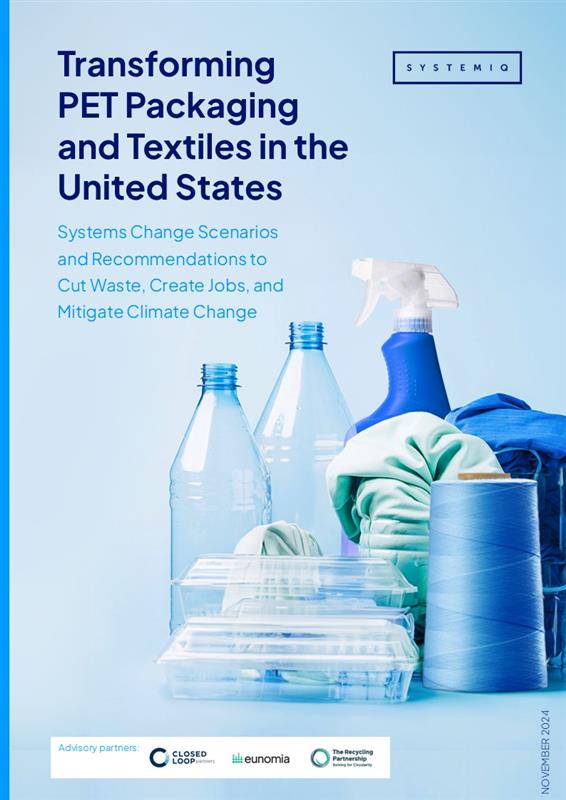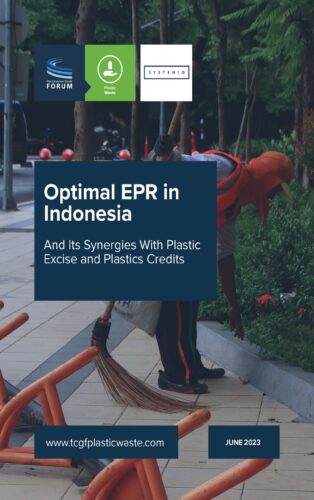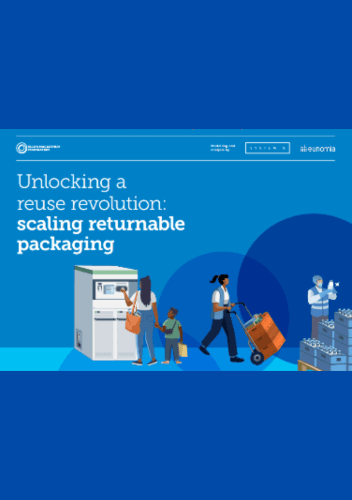The new study “The New Plastics Economy: Catalysing Action” by the World Economic Forum and the Ellen MacArthur Foundation, with analytical support from SYSTEMIQ, presents an action plan on how concerted action by the industry could drive a transformation of the plastic packaging sector and deliver social, economic and environmental benefits worldwide. The report lays out targeted actions to move the sector from a single-use “Take-Make-Dispose” system to a circular plastics economy, with an increase from 14% to 70% re-use and recycling rates.
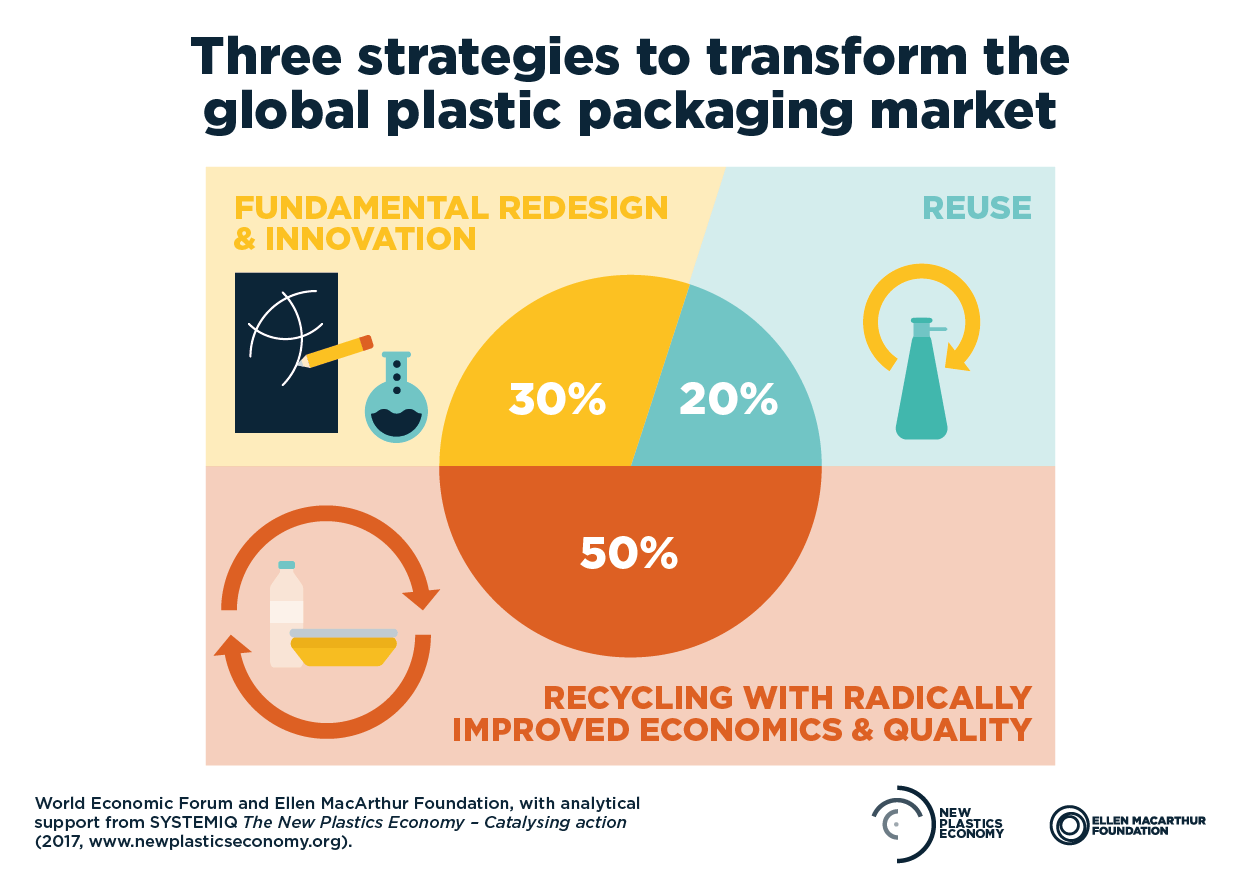
The report provides a clear transition strategy for the global plastics industry to design better packaging, increase recycling rates, and introduce new models for making better use of packaging. It finds that 20% of plastic packaging could be profitably re-used, for example by replacing single-use plastic bags with re-usable alternatives, or by designing innovative packaging models based on product refills. A further 50% of plastic packaging could be profitably recycled if improvements are made to packaging design and systems for managing it after use. Without fundamental redesign and innovation, the remaining 30% of plastic packaging (by weight) will never be recycled and will continue to destine the equivalent of 10 billion garbage bags per year to landfill or incineration.
“This could drive systemic change. The plan puts innovation at the heart of a strategy that could shift the entire system while unlocking a billion dollar business opportunity. Alignment along value chains and between the public and private sector is key to this.”
— Dominic Waughray, Head of Public-Private Partnership, Member of the Executive Committee, World Economic Forum
The action plan was produced as part of the New Plastics Economy initiative, which was launched in May 2016 as a direct result of Project MainStream, a multi-industry, CEO-led collaboration led by the World Economic Forum and the Ellen MacArthur Foundation. The New Plastics Economy initiative brings together more than 40 leading organisations representing the entire global plastics industry, from chemical manufacturers to consumer goods producers, retailers, city authorities and recyclers, to work together towards a more effective global system. Core Partners in the New Plastics Economy initiative include Amcor, The Coca-Cola Company, Danone, MARS, Novamont, Unilever, and Veolia.
The focus of the New Plastics Economy over the next year will be on bringing about wide scale innovation. The initiative will launch two global innovation challenges to kick-start the redesign of materials and packaging formats, and begin building a set of global common standards (a ‘Global Plastics Protocol’) for packaging design, concentrating initially on the most impactful changes. It will also improve recycling systems by delivering collaborative projects between participant companies and cities.

